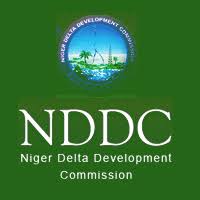In a decisive move, the Senate Committee on Niger Delta Development Commission (NDDC) asserts its commitment to ensuring that International Oil Companies (IOCs) operating in Nigeria meet their financial obligations to the commission. Senator Ned Nwoko, a member of the committee, revealed this intention in an exclusive conversation with the News Agency of Nigeria (NAN) in Abuja on Sunday.
Nwoko emphasized that the IOCs owe the commission substantial amounts, reaching into hundreds of billions of dollars. He affirmed that the committee plans to invite and investigate these companies to ensure compliance with their financial responsibilities.
Despite generating significant revenue in Nigeria, certain IOCs have allegedly neglected their contributions to the NDDC. Nwoko expressed the committee’s determination to hold these companies accountable, stating, “We must also insist that they do that. They must do that. You know, they are owing hundreds of billions of dollars to NDDC coffers. So we will invite them, we will investigate them, and we will make sure they do what is right.”
The senator clarified that the committee’s objective is not to interfere with the IOCs’ operations but to enforce their obligations under Nigerian law, particularly regarding host communities. He emphasized the importance of the IOCs dealing with these responsibilities.
Addressing concerns about potential compromises, Nwoko asserted, “I don’t think any member of the committee on NDDC will be compromised because we will not accept it.”
In terms of project execution, the tenth assembly and the NDDC committee aim to ensure effectiveness. Nwoko outlined the committee’s approach, stating, “If they must oversight properly and without fear of reproach, they must do things properly.”
The senator expressed confidence in the current leadership of the NDDC, assembled by President Bola Tinubu. He highlighted the need for proper utilization of allocated budgets to make a positive impact on the lives of the people in the Niger Delta region.
The committee’s stance indicates a shift from past practices, with an emphasis on accountability and proper utilization of resources for the benefit of the communities involved.
Source: [The Guardian]



